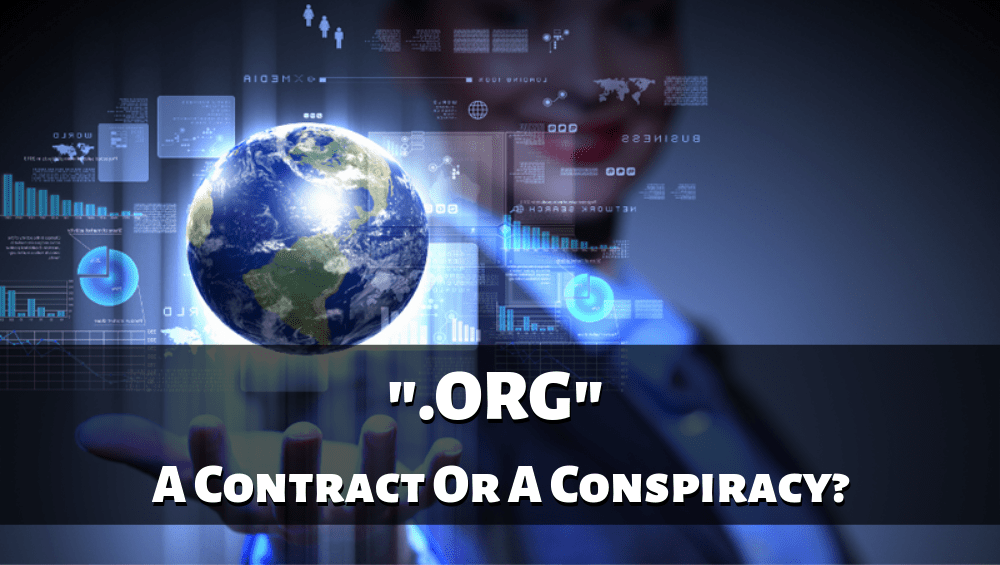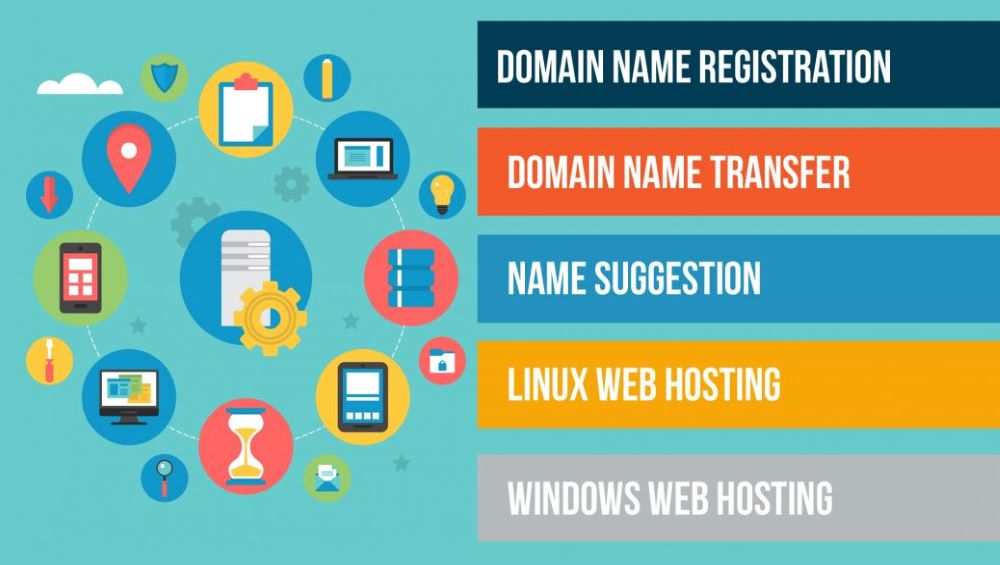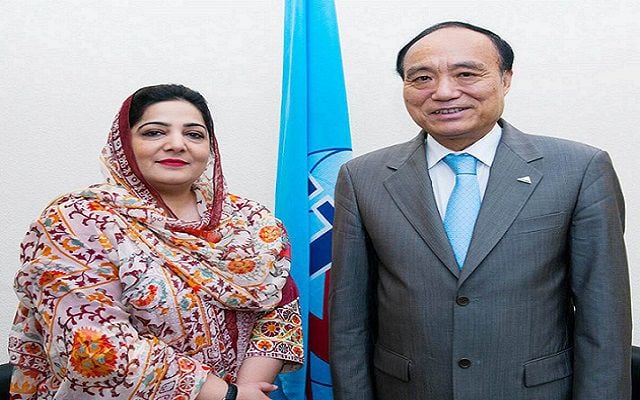.ORG: A Contract Or State-Level Conspiracy?

Recently, ICANN revised its PIR contract regarding the .ORG domain. And this caused them a great backlash. However, most people are stressing over things of less significance in the contract whereas the new Registry Agreement conceals greater conspiracies. Herein, you will find an attempt to critically analyse the .ORG’s renewed contract and to unleash the hidden motives behind these so-called security policies.
What Is ‘.ORG’?
For the noobs out there, A domain is like an IP Adress to which the particular site responds back to. For example, we have phoneworld.com.pk and mozilla.org. These are ordinary sites with different servers or domains. It is just like street addresses. PhoneWorld lives at ‘.COM.PK’ whereas Mozilla is situated at ‘.ORG’.
‘.ORG’ is a generic top-level domain (gTLD) of the Domain Name System (DNS) used on the Internet. It was established in 1985 and has been in use by the Public Interest Registry (PIR) since 2003. Since then it has been a highly prestigious and secure domain. But recently the new Registry Agreement(RA) Contract introduced concerning ‘.ORG’ seems a bit too much of a compromise we can’t afford to make. Let us see what it is fishy about this new RA.
What Is ICANN?
ICANN (established in 1998) is a non-profit partnership between people around the globe in order to make the internet a global thing. To connect and unify people through the internet and to make the world a global village. In addition to that its main purpose is to keep the internet secure and connected. Through its DNS it promotes competition, yet keeps everything within a secure system.
Critical Analysis Of The Registry Agreement
No Price-Caps
The new RA proposes that there would be no price-caps for ‘.ORG’ that means that no upper limit to charge for their services at all. They may charge as much as they want. But this should not concern us much as the other domains are still there with price caps and if .ORG will be offering the same services with increased charges people will simply shift to the other available options. The high competition in this regard acts as a safeguard or price cap itself. But what if following the footsteps others like ‘.COM’ come into such contracts? this will form a joint mafia.
Contradictory Policies
A section of the RA commits .ORG to the Trademark Claims Notices and Uniform Rapid Suspension (URS) processes. In order to make it understandable, Trademark claims notices and URS work cordially to stop cybersquatting. Cybersquatting is like an online ‘kabza group‘ the term is used when people illegally claim other’s properties (online registrations) to be theirs. In it, Trademark Claims Notices ensures that the characters or name for your registration isn’t already taken by some TM and URS helps cybersquatting victims to get back their belongings in a much quicker way than the courts, in addition to that they are cheaper.
Previously the same function was served by the Uniform Dispute Resolution Process (UDRP) but it was thought that with a lot of new TLDs coming into existence it would be very slow and expensive. Thus these new rights protection mechanisms (RPMs) were introduced instead.
Now we see that out of nowhere these RPMs vanished, they aren’t even on the new TLDs. And yet ICANN said that they are under a process of examining and assessing each RPM and deciding whether it is needed at all or not. A point to ponder, isn’t it? Were they not sure of what they wanted to do? Or in the middle of something these policies were acting as a hurdle thus they needed to do something about them?
Who Is The New Boss?
The main issue with the RA are these ignored RPMs. This means that none other than these new policies and ICANN look over the .ORG registrants. And none can do anything about it as ICANN and PIR have already made it as the part of the contract. On this the Electronic Frontier Foundation said:
“Trademark Claims Notices received by people who seek to register a domain name tend to deter registrations that would not infringe a trademark or otherwise invade the legitimate rights of a trademark holder. Claims Notices, which warn of the possibility of infringement, can be misleading for non-commercial users because non-commercial use of a word or phrase is not trademark infringement as a matter of law. Because the .org TLD is used primarily by nonprofit organizations engaged in a variety of charitable, educational, religious, scientific, and public interest activities, their uses of a domain name are far more likely to be non-commercial, and thus outside any exclusive right of a trademark holder.”
To spice it all up they even allowed PIR to self-generate “rights protection mechanisms” which means that registries may get involved in content regulation which is strictly against the ICANN’s policies. The Electronic Frontier Foundation reacted to it in the following manner:
“For example, registry operator Donuts enforces “Domain Protected Marks List” and “DPML Plus” policies that allow trademark holders to withdraw a name from use by others across hundreds of gTLDs, thus interfering with millions of potential non-infringing uses of those names by others. ICANN should not permit Public Interest Registry to impose its judgment about the proper balance of public and private rights in domain names upon millions of non-profit organizations by fiat, bypassing community input.”
Reservations Being Made
Specification 5 bargain rights to governments to prohibit the registration of the names of countries and geographic territories. And this is surely not the result of a collective consensus rather a purely personal interest-based solo decision. ICANN finally fulfilled the desire of various Government Advisory Committee (GAC)’s members. This, “.ORG” contract totally bypassed the GNSO’s policy process and gave the governments the right environment to play their cards as they will.
The Bigger Picture
The United Nations (UN) was made in order to resolve global conflicts and to avoid future wars. But it is very difficult to agree today that the UN is not run by a single superpower. It fuels their interests and shows up its goodness whenever those interests are not compromised. We see the UN completely silent over the Syrian conflict, or the Iraq Conflict or The Kashmir Issue.
Likewise, ICANN was developed for a universal well being and connectivity of humanity. But unfortunately, these new policies give rise to a red alert that politics has found its way into it and now with the representation of ICANN as a universal saviour and online protection. Only a group of people or politicians to be exact will use it as a weapon to support their allies and destroy their enemies.
What Can We Do?
We can hope and fight for, that .COM doesn’t get involved in any of such policies or else there will be a huge backlash. As .COM is the most used domain and its falling victim means most of the world’s registries get affected by it. We must spread awareness about this state-level conspiracy or else a new era of digital-wars may begin. A point to ponder here is that is it all somehow linked with the US-China Trade War? After all, what can be a better destructive weapon than technology today?
PTA Taxes Portal
Find PTA Taxes on All Phones on a Single Page using the PhoneWorld PTA Taxes Portal
Explore NowFollow us on Google News!

